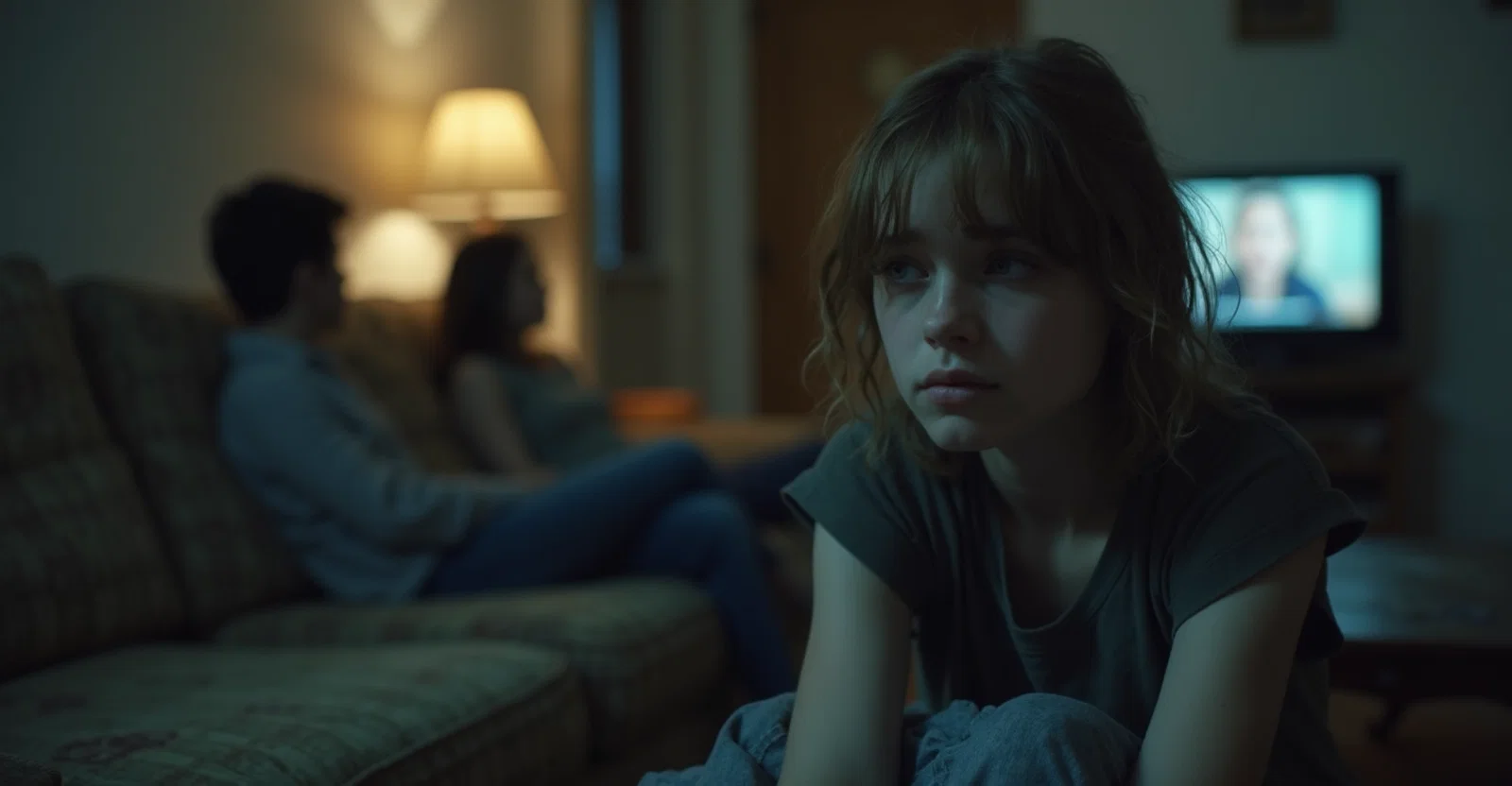I was very close with my mother, and her way of punishing me was always by ignoring me. For me, the most terrifying punishment was feeling disconnected from our bond, feeling that the closeness had been severed. I believe this is one of the worst things a parent can do to a child—punish them in this way.
In all the “reasonable” articles I read, they say that even if a child has misbehaved, it’s crucial to reassure them that, although their action was wrong, they are still loved, and the connection remains intact. But for me, any “wrongdoing” was equivalent to a complete rupture of connection and being thrown into the realm “beyond” closeness—where there is no one but me, no possibility of communication, no sense of belonging.
Because of this, a reverse relationship forms as well: wherever there is no sense of belonging, there arises a feeling of being guilty, of having done something wrong, of being bad.
I recently read an article describing mothers who once did certain harmful things in raising their children — and now “deny” any responsibility. The comments below it were full of outrage, calling out such parents who can’t admit how cruel or damaging their behavior sometimes was, acting as though nothing ever happened.
On one hand, I understand this outrage — I’ve stood in that child’s shoes. My dad never body-shaming me. My mom convinced me that I was “rude” and “unfeminine” and that that boys wouldn’t love me.” Of course, none of it was said out of malice — but it landed just the same.
And I still don’t know if I’ll ever fully break free from the weight of those messages, planted in childhood and rooted deep. I genuinely believe that my entire life has been distorted because of them.
But on the other hand — what are parents supposed to do?
Live in guilt forever (if they even realize what they did)?
Beg for forgiveness over and over?
Let their children punish them endlessly in an attempt to even the scale?
I’m not talking about deeply abusive or mentally unstable parents who tormented their children because of their own unhealed illness. I’m talking about ordinary people — people who simply didn’t know better. Who didn’t realize they were causing harm. Or couldn’t comprehend the long-lasting effects of their words and actions. What should they do now, decades later? Even saying “I’m sorry” — just once — takes immense inner strength.
Still, they raised us. They fed us, clothed us, made sure we had notebooks and pens and got good grades. For many, that was the pinnacle of what it meant to be a good parent. And for that, we can be grateful — if only for the fact that we became self-aware enough to see the damage, and try to live forward.
The truth is, all parents hurt their children in some way. There is no such thing as a perfect upbringing. Growth requires discomfort, and sometimes, parents overdo it. Especially those who weren’t raised with the emotional language we have access to now. My mother, despite graduating from a department of child psychology, didn’t fully see the harm she caused me — I saw it more clearly than she did. And that’s saying something.
She died when I was 21. Before she passed, she wrote me a letter — admitting she had been unfair to me, that she hadn’t given me enough. I hope she meant she hadn’t taught me how to love myself. I’m still not sure. But only in the face of death could she bring herself to admit it.
My father died three years ago and never once acknowledged what he did to my life. On the contrary, I think he suffered quietly, believing he had abandoned me (my parents divorced when I was seven). Every time he drank, he would try to convince me otherwise — telling me he loved me, that he didn’t want to leave me. But in truth, his second wife, her daughter, and her family were always more important to him than I was. At least in practice. Though his words said otherwise.
I think nothing is more painful than admitting — truly admitting — that you’ve disfigured your child’s life. Especially when all you ever wanted was for them to be happy. The psyche shields us from that kind of recognition. Because if it didn’t, we might not survive it.
That’s why I don’t believe in blaming our parents forever. Or demanding emotional awareness and endless regret. It is what it is. And without acceptance, we only push away the very people we most need to stay close to.
Because beneath it all, there’s still love.
And it doesn’t go away.
It’s incredibly hard without my parents. Especially without my mom.
But I believe this: Recognizing the damage our parents caused us is not about blaming them.
It’s about understanding ourselves.
It’s too late to keep assigning blame.
Now it’s time to accept what was.
And to keep loving — because their love is still with us.
And because, more than anything, our parents did want us to be happy.



